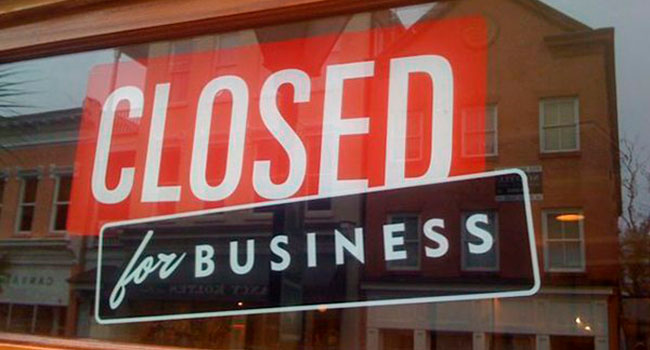 Despite the relentless media drum-banging around the alarmist COVID-19 narrative, this virus is not the Black Death. Official numbers have the Canadian death count so far just over 14,000, bad for sure, but not hugely off the yearly flu toll in Canada that kills 6,500 to 8,000 people.
Despite the relentless media drum-banging around the alarmist COVID-19 narrative, this virus is not the Black Death. Official numbers have the Canadian death count so far just over 14,000, bad for sure, but not hugely off the yearly flu toll in Canada that kills 6,500 to 8,000 people.
The average age of those people who suffer COVID-19 deaths is in the mid-80s – which is higher than the average life expectancy in Canada (82 in 2017). This particular bug is dangerous to seniors with immune systems compromised by chronic health conditions (co-morbidities like dementia, heart disease, high blood pressure, diabetes or obesity).
In Alberta, 76 per cent of Covid deaths have been of very sick people (typically with three co-morbidities). Only 2.3 per cent of deaths have affected known healthy people. These are the unremarkable numbers, sad as they are, underlying the panic narrative.
In Manitoba, it’s the same story. As of Dec. 17, 314 people diagnosed with COVID-19 were in the hospital, with 42 of them in intensive care. With 67 hospitals in Manitoba, these numbers work out to be less than five COVID-sick people per hospital. Manitoba overall has more than ample hospital capacity of 2,400 beds – with an overflow capacity of an additional 1,000 beds.
A dose of COVID-19 reality by Pat Murphy
And, like the rest of the country, most of Manitoba’s COVID-19 deaths are of immuno-compromised seniors with co-morbidities – the same population that succumbs naturally to flu every year.
How the lockdowns affect us
The Justice Centre for Constitutional Freedoms, a public interest group, is pushing back on the lockdowns as unprecedented and unconstitutional destructions of Canadians’ basic liberties, freedoms and charter rights.
The group observed in a November media release that “Half of the latest deaths (COVID) are from outbreaks at care homes or hospitals, where elderly residents are already in lockdowns. A total of 123 deaths in Manitoba could be attributed to COVID-19 since March. More than 11,000 Manitobans die each year, more than 900 Manitobans die every month, and more than 200 die every week. The total deaths from COVID-19 in eight months has been less than the number of people who die in the province in a week from other causes. Why are these deaths considered less important, or less sad, than deaths caused by one virus?”
The Black Death and its aftermath by Pat Murphy
Instead of focusing on a problem concentrated in our long-term care facilities, politicians have closed vast swaths of our economy, throwing hundreds of thousands out of work and bankrupting countless businesses. Beyond this self-harm, our quality of life has been severely degraded by the costly micro-management of Canada’s economic and social life.
Consider the civil discord and social divisiveness these policies are creating: pitting ‘essential’ and ‘non-essential’ businesses against each other, symbolic but ineffective masking rules (a gold-standard Danish study released recently suggested that masks don’t stop the virus), and the creation of snitch lines for busybodies reporting on neighbors’ illegal social gatherings.
Finally, the lockdowns have closed church services, funerals, weddings, many schools, and other basic aspects of normal life.
Light at the end of the tunnel
Yet there is light at the end of the tunnel. The damage and civil discord is becoming so obvious that elected officials may finally recognize that lockdowns truly are a cure worse than the disease. The virus will follow its natural course and eventually burn itself out – with or without the billions to be spent on vaccines. (For the majority interested in vaccines, they should find them readily available by the second quarter of 2021.)
Driven by massive government deficits, impossible to cover through tax increases alone, we will soon be headed into the “great reset.” Not the fantastical and unaffordable “build back better” dreams of green utopians but a necessary widespread restructuring of our economy, communities and public policy – driven by the need to substantially cut spending through reconfiguring services.
If the political leadership is smart, we will see the end of the dismally performing monopoly models of health care and education and a much needed rethink of universities.
A flight from urban density and its higher perceived risk of contagion will see the rise of the suburbs, rural areas and cottage country – as well as a sharp decline and rethink of mass transit in favour of personal mobility (electric cars, driverless cars, Uber).
Further expansion of high-speed internet, the driver of the burgeoning online economy in the private sector, will further enable and disrupt our legacy public sector. Think telemedicine, remote learning, compact/high performing governments, joining the world of online shopping, food delivery, and remote working that has been so turbocharged by the stumbling lockdown panic. Over a nasty strain of the flu.
Exciting times – best if we choose right.
Peter Holle is president of the Frontier Centre for Public Policy.
Peter is a Troy Media Thought Leader. Why aren’t you?
For interview requests, click here. You must be a Troy Media Marketplace media subscriber to access our Sourcebook.
The views, opinions and positions expressed by columnists and contributors are the author’s alone. They do not inherently or expressly reflect the views, opinions and/or positions of our publication.

